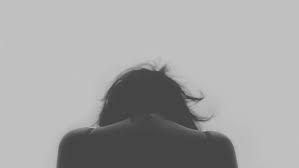Intrusive thoughts are a common symptom of depression. Though they can be disturbing and even downright scary, it’s important to remember that they are just thoughts – they aren’t real. In this blog post, we will discuss what intrusive thoughts depression are, why they occur, and how to deal with them effectively.
Contents
- 1 Are Intrusive Thoughts Part Of Depression?
- 2 What Are Depressive Intrusive Thoughts And Types?
- 3 How Do Intrusive Thoughts And Depression Linked?
- 4 What Causes Horrible Intrusive Thoughts And Depression?
- 5 Diagnosis Of Intrusive Thoughts And Depression
- 6 How I Cured My Depressive Intrusive Thoughts?
- 7 Conclusion
Are Intrusive Thoughts Part Of Depression?
Intrusive thoughts are a common symptom of depression. They are defined as repetitive, unwanted, and often disturbing thoughts that pop into one’s mind without warning. These thoughts can be related to a wide variety of topics, such as fear of harm coming to oneself or others, inappropriate sexual thoughts, or worries about doing something wrong. Intrusive thoughts can be upsetting and cause a great deal of distress for the person experiencing them.
What Are Depressive Intrusive Thoughts And Types?
Here are some of the types of depressive intrusive thoughts:
- Fear-based Thoughts: These types of thoughts include unrealistic worries that something bad will happen to you or someone close to you.
- Obsessive Thoughts: These are persistent ideas, images, or urges that one cannot seem to get rid of no matter how hard one tries. This can lead to rumination and an inability to focus on anything else.
- Suicidal Thoughts: It is not uncommon for someone with depression to have suicidal thoughts. These are thoughts of regret or feelings of self-blame.
- Sexuality-Based Thoughts: These intrusive thoughts can involve inappropriate ideas or fantasies that seem out of character with one’s beliefs and values.
- Religious Thoughts: People with depression may also experience intrusive thoughts related to their religious beliefs. These could involve doubts about a particular faith, or anxiety around following certain rules.
- Other Thoughts: Many other types of intrusive thoughts can be experienced with depression, such as feeling overwhelmed or out of control.
How Do Intrusive Thoughts And Depression Linked?

Here we have two different conditions, depression and intrusive thoughts.
Similarities
Here are some shared characteristics of these conditions:
- Intrusive thoughts can cause negative emotions, including sadness, anger, guilt, and worry. These negative emotions can create a cycle that feeds the intrusive thought pattern and amplifies the depression symptoms.
- Both intrusive thoughts and depression are often accompanied by rumination or excessive worrying about the intrusive thought.
- Intrusive thoughts can make it difficult to concentrate, which is a common symptom of depression.
- For those suffering from depression, intrusive thoughts can take on a critical and persecutory tone, leading to an increase in feelings of worthlessness and low self-esteem.
- Intrusive thoughts can cause people to withdraw from activities and relationships, which is a common symptom of depression.
- Some research suggests that intrusive thoughts may be related to changes in the brain’s chemistry, specifically dopamine levels. Low dopamine levels are associated with an increased risk of developing depression.
Differences
- Intrusive thoughts are sudden, involuntary, and unwanted thoughts; whereas, depression is a prolonged period of sadness or despondency often accompanied by low self-esteem, lack of motivation, hopelessness, and overall feeling of gloom.
- Depression can manifest itself in behavioral changes such as a lack of energy or interest in activities that used to be enjoyable. Intrusive thoughts come in the form of images, sounds, and words.
- Depression is usually linked to an underlying issue that requires treatment and support. Intrusive thoughts cause distress because they are often seen as a sign of mental illness.
- Depression requires a combination of therapies such as psychotherapy or talk therapy, medications, lifestyle changes, and developing healthy coping mechanisms. Intrusive thoughts can be managed with cognitive-behavioral therapy and medication, if necessary
- Generally, intrusive thoughts are generally short-lived and may last only a few minutes; whereas, depression can last for weeks or months.
- Intrusive thoughts are often triggered by stress and anxiety but will pass with time. On the other hand, depression is more serious and requires professional help to manage it.
What Causes Horrible Intrusive Thoughts And Depression?
 Here are some of the most common causes of intrusive thoughts and depression:
Here are some of the most common causes of intrusive thoughts and depression:
- Stress: Our modern, fast-paced lifestyles can be filled with stressful situations that can cause us to ruminate on negative thoughts. This can lead to a cycle of worry and feeling overwhelmed, resulting in intrusive thoughts and eventually depression.
- Trauma: Experiencing a traumatic event can cause intrusive thoughts and depression. Traumatic events can leave lasting psychological scars, leading to flashbacks and nightmares. This can lead to negative thoughts and rumination, eventually causing depression.
- Biology: We now know that our brain chemistry plays a huge role in how we experience the world. Depression is closely linked to imbalances in neurotransmitters such as serotonin and dopamine.
- Genetics: There is a strong genetic component to depression, meaning that if a family member had depression, you may be more likely to experience it yourself. It’s important to talk to your doctor if you think you may be at risk for depression due to your family history.
- Social Isolation: When we don’t feel connected to others, it can lead to feelings of loneliness and helplessness. This can trigger intrusive thoughts and depression.
Diagnosis Of Intrusive Thoughts And Depression
Intrusive thoughts and depression are often difficult to diagnose. To make a diagnosis, a mental health professional will take into account the type of intrusive thoughts experienced. A professional also considers other signs and symptoms that may be present such as changes in mood or behavior, difficulty sleeping, lack of interest in activities, or fatigue.
How I Cured My Depressive Intrusive Thoughts?
 Here are some of the steps I took to help myself recover from depressive intrusive thoughts:
Here are some of the steps I took to help myself recover from depressive intrusive thoughts:
- Start with talking with a therapist to explore the underlying causes of depression and anxiety. The therapist would be helpful to develop coping skills and strategies to manage my intrusive thoughts, such as distraction techniques and positive self-talk.
- By practicing mindfulness and meditation, you will start focusing on the present moment to reduce anxiety. This will let you be more aware of your thoughts so that you can acknowledge them without getting overwhelmed.
- You need to engage in regular physical activity to help reduce stress and improve mood. Exercising also gives you a sense of accomplishment, which was beneficial in managing depression.
Therapy
Many therapies can help manage depressive intrusive thoughts. Cognitive-behavioral therapy (CBT) can help you learn how to manage and overcome your intrusive thoughts.
The ERP (exposure and response prevention) is a type of therapy where you are exposed to intrusive thoughts in a safe environment and learn how to manage them.
Medication
Medication can also be helpful for managing depressive intrusive thoughts. Antidepressants, anti-anxiety medications, selective serotonin reuptake inhibitors (SSRIs), as well as antipsychotic medications can all be used to treat depression and OCD. It is important to consult with a doctor or psychiatrist before starting any help manage
Self-Help Techniques
Engage in positive self-talk and avoid negative thoughts. Practice mindfulness techniques such as deep breathing and meditation to help reduce stress levels. Try to focus on activities that you enjoy doing, like reading or listening to music, as this will help distract your mind from intrusive thoughts and obsessions.
Conclusion
Intrusive thoughts depression can be difficult to manage, but it is possible. It is important to remember that you are not alone in this journey and there are plenty of resources available to help you cope. With the right treatment plan and self-help strategies, you can learn to manage your depressive intrusive thoughts.
If you are struggling with intrusive thoughts and other related conditions, it is important to seek help from a mental health professional.
Take care, and don’t forget that you are not alone! OCD is a mental health disorder characterized by obsessions and compulsions. If you have any queries regarding OCD treatment, ERP therapy experienced therapists at OCDMantra can help: Book a trial OCD therapy session


